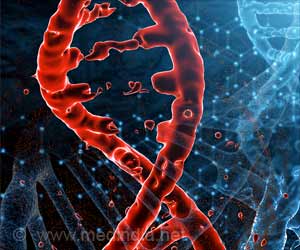Second phase of a clinical trial found that injections of adult patients' own stem cells reduced reports of angina episodes in angina patients.

The objective of the trial was to determine whether delivery of autologous (meaning one's own) CD34+ stem cells directly into multiple targeted sites in the heart might reduce the frequency of angina episodes in patients suffering from chronic severe refractory angina, under the hypothesis that CD34+ stem cells may be involved in the creation of new blood vessels and increase tissue perfusion.
"Early research across multiple disease categories suggests that stem cells generated within the body in adults may have therapeutic benefit. This is the first controlled trial treating chronic myocardial ischemia (CMI) patients with their own stem cells to achieve significant reductions in angina frequency and improvement in exercise tolerance," said lead investigator Douglas W. Losordo, MD, director, Feinberg Cardiovascular Research Institute and the Eileen M. Foell Professor of Heart Research at Northwestern's Feinberg School of Medicine and director, Program in Cardiovascular Regenerative Medicine at Northwestern Memorial Hospital.
"While we need to validate these results in phase III studies before definitive conclusions can be drawn, we believe this is an important milestone in considering whether the body's own stem cells may one day be used to treat chronic cardiovascular conditions," added Losordo.
Source-ANI














